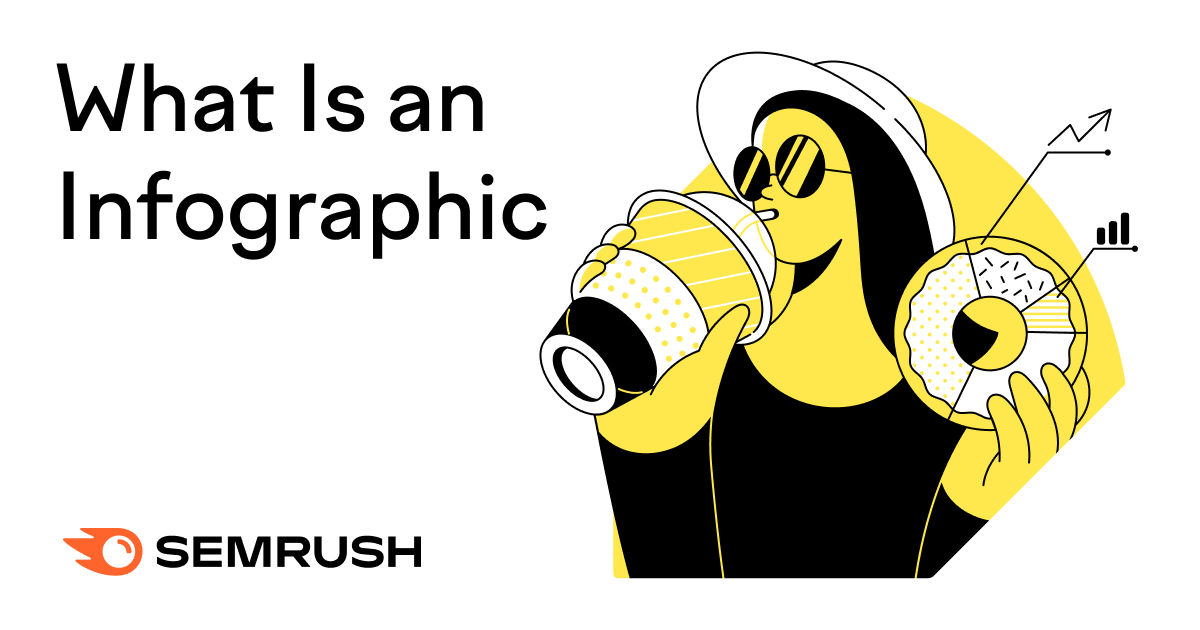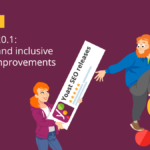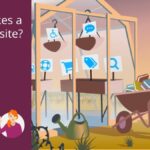
What Is an Infographic? Benefits, Examples & Tools
- Digital MarketingNewsSoftware
- October 31, 2023
- No Comment
- 81
[ad_1]
What Is an Infographic?
An infographic is a compelling mix of visible information and minimalistic textual content. It presents data swiftly, clearly, and successfully.
Infographics embrace visible parts like charts, graphs, and illustrations. And these parts aren’t only for seems. They enhance information comprehension.
So, what’s the function of an infographic?
At its core, an infographic is a storytelling software.
It turns difficult data right into a visually interesting story that is easy to know.
Advantages of Utilizing Infographics
Infographics supply quite a few advantages. Listed below are 4 fundamental advantages of utilizing infographics:
- Enhanced comprehension: Infographics make it simpler to know data by visually presenting it in a structured and arranged method
- Elevated engagement: Infographics can appeal to the eye of viewers. They’ll additionally enhance the general engagement degree of tourists on a web page. This may end up in extra time spent in your web site.
- Straightforward sharing: Infographics are extremely shareable. Making them a robust advertising software. When a viewer finds the data in an infographic useful or fascinating, they’re extra more likely to share it on social media platforms. This will exponentially enhance the attain of your content material.
- search engine optimization enhance: Infographics are an effective way so as to add high-quality content material to your web site. Which search engines like google place a variety of worth on. Additionally they have the potential to generate backlinks. Which may enhance your total search engine optimization efforts.
Additional studying: 12 Reasons Why Infographics Still Matter in SEO
15 Infographic Examples and When to Use Them
1. Statistical Infographics: Bringing Information to Life
Statistical infographics give attention to presenting statistical information in a visually compelling method.
They’re an efficient method to show data-heavy analysis and survey outcomes.
This is an instance of how this infographic can look:

This infographic design is ideal for:
- Displaying survey outcomes
- Trade tendencies
- Information-driven insights with clear visuals basically
2. Informational Infographics: Simplifying Complexity
Informational infographics educate your viewers by simplifying complicated ideas or concepts. These infographics sometimes use icons, visuals, and concise textual content for that.
Right here’s an excellent instance:

Informational infographics are nice for:
- Step-by-step guides
- Tutorials
- Explaining complicated processes basically
3. Timeline Infographics: Visualizing Progress and Historical past
Timeline infographics organize data chronologically and might present historic occasions, venture milestones, or the evolution of a topic.
This helps your viewers grasp the sequence and development of occasions simpler.
Right here’s what a timeline infographic can appear to be:

They’re excellent for:
- Highlighting firm achievements
- Emphasizing trade developments
- Any narrative with a timeline construction
4. Course of Infographics: Guiding Customers Step by Step
A course of infographic is invaluable for illustrating step-by-step processes or workflows.
They information your viewers by actions, simplifying complicated procedures.
Right here’s an instance from Venngage:

You should use them to stipulate:
5. Comparability Infographics: Highlighting Variations & Similarities
Comparability infographics analyze many topics facet by facet. Highlighting their similarities and variations.
They will let you evaluate merchandise, companies, or concepts whereas educating your viewers.
Right here’s one instance:

This infographic design is ideal for:
- Evaluating merchandise
- Evaluating platforms
- Contrasting options
6. Geographic Infographics: Visualizing Location-Based mostly Information
Geographic infographics convey essential geographical information. They’ll present tendencies, demographics, and journey patterns utilizing maps, charts, and statistics.
Right here’s how we used it in our report about cryptocurrency:

Geographic infographics are perfect for:
- Journey guides
- Market analyses
- Any content material needing location-specific insights
7. Hierarchical Infographics: Illustrating Relationships and Hierarchy
Hierarchical infographics symbolize relationships, buildings, or organizational hierarchies.
They guarantee readability when showcasing complicated methods.
Under is a good instance of hierarchical infographic:

Hierarchical infographics are nice for:
- Explaining group buildings
- Displaying the chain of command inside a corporation
- Categorizing data based mostly on significance or affect ranges basically
8. Listing Infographics: Condensing Info
Listing infographics visually symbolize data in an inventory format.
They’re significantly efficient for presenting a collection of suggestions, steps, strategies, or any set of knowledge that may be damaged down into particular person objects.
Additionally they supply interactivity in your web site. Folks would possibly obtain a guidelines if it’s helpful for them. Which suggests they’re interacting along with your web site quite than simply scrolling. This will improve engagement.
It’s a easy but efficient manner to supply additional worth to your viewers.
Right here’s an instance of record infographic from our on-page SEO checklist article:

Listing infographics are perfect for:
- Outlining suggestions
- Offering fast takeaways or highlights for readers on the go
- Summarizing key factors from a bigger content material piece
9. Anatomy Infographics: Explaining Elements of a Complete
Anatomy infographics use labels and detailed illustrations to elucidate components of an entire.
These infographics are perfect for explaining the composition of objects, buildings, or methods.
Right here, you may have an instance from our article showcasing the anatomy of top performing content.

Anatomy infographics work finest when:
- Demonstrating the varied parts of a product, just like the totally different components of a smartphone or the layers of a mattress
- Explaining a fancy idea that has a number of sides
10. Cycle Infographics: Visualizing Cyclical Processes
Cycle infographics showcase processes that function in a round or cyclical method.
In contrast to linear processes which have an outlined begin and finish level, cyclical processes loop again to the start. Indicating a steady or repetitive sequence.
Right here’s an instance:

These infographics work nice for:
- Highlighting financial cycles equivalent to growth and bust patterns. Showcasing intervals of financial progress adopted by recession, after which restoration
- Depicting product life cycles showcasing the levels from ideation to product retirement
- Demonstrating any recurring enterprise processes
11. Photographic Infographics: Incorporating Actual Pictures
Photographic infographics use actual pictures to boost information visualization.
They’re significantly helpful to provide actual world context to the info. Or so as to add authenticity to the data.
Quartz offers an ideal instance of what the sort of infographic can appear to be:

You should use photographic infographics for:
- Case research
- Journey guides
- Any content material that may profit from actual photographs
12. Visualized Article Infographics: Illustrating Weblog Posts
Visualized article infographics condense weblog posts into easy-to-read visuals.
They assist readers perceive and bear in mind the content material extra simply. Or they can be utilized as a abstract of longer articles.
Right here’s an instance from our article about infographic designs:

You should use visualized article infographics to:
- Summarize long-form content material
- Generate engagement round your weblog posts
- Make complicated subjects extra accessible to readers basically
13. Quiz Infographics: Assessing Data
Quiz infographics incorporate quizzes or interactive questions into an infographic format.
They’ll add a contact of enjoyable and interplay. Folks can depart their solutions in feedback or share on social media to spice up engagement.
This is how MindJournal leverages this infographic kind:

You should use quiz infographics for:
- Assessing data and understanding of a specific subject material
- Testing comprehension and recall of coaching supplies
- To get suggestions out of your viewers
14. Resolution Tree Infographic: Branching Paths with Completely different Outcomes
A call tree infographic depicts a branching path of choices and their outcomes.
It helps the viewers perceive how totally different decisions result in totally different outcomes.
Right here’s an instance Sprinklr makes use of:

Resolution tree infographics are perfect for:
- Private finance
- Profession recommendation
- Serving to audiences perceive the right way to troubleshoot issues
- Some other scenario involving decision-making
15. Venn Diagram Infographics: Presenting Relationships
Venn diagram infographics symbolize relationships between information units utilizing overlapping circles.
Right here’s the way it seems:

Venn diagram infographics are significantly helpful for:
- Explaining intersecting subjects
- Evaluating variations and similarities
- Serving to audiences comprehend connections between many ideas without delay
Additional studying: 41 Infographic Examples to Inspire You
How one can Make an Efficient Infographic: A Step-by-Step Information
1. Select the Proper Subject
Your infographic ought to be related and helpful to your target audience (the individuals your content material is for).
It ought to:
- Reply questions
- Resolve issues
- Provide new insights
Ask your self these questions to attain that:
- Who’s your viewers?
- What sort of data can be useful to them?
- What issues are you able to assist them remedy with an infographic?
You may leverage Semrush’s Topic Research software to brainstorm concepts and discover related subjects which might be value protecting within the type of infographics.
Right here’s how to do this:
Let’s say you’re within the well being and health area of interest.
And also you wish to create one thing round vitamin.
First, enter your fundamental theme, equivalent to “vitamin,” within the search bar. You can too specify your goal location in case your content material is for a selected geographic viewers.
Then, click on the “Get content material concepts” button:

The software will generate subtopics associated to your fundamental theme.
In our case, the principle theme was “vitamin.” So, we see subtopics like “wholesome meals,” “dietary info,” and so on.:

Click on on every subtopic to see standard questions individuals ask about that particular subject:

These questions can encourage infographic content material that addresses your viewers’s queries.
2. Conduct Complete Analysis
Conduct complete analysis to get a deeper understanding of your subject.
That’s an important step in crafting an efficient infographic. As a result of it ensures that your content material is correct, related, and helpful to your audience.
Right here’s how you need to use the Keyword Magic Tool on your analysis:
Let’s take our vitamin instance.
First, kind “vitamin” into the search bar and click on “Search.”

The software will generate an inventory of concepts you possibly can discover in your infographic:

You may additional use the filters to refine your search and generate much more centered key phrase concepts. For instance, for those who click on on “Questions”:

This may generate questions individuals ask about vitamin.
You reveal your experience and understanding of the trade by straight addressing widespread queries or issues.
This will place you as a go-to useful resource for helpful, correct data. And likewise foster a way of reliability and credibility along with your viewers.
Subsequent, it’s also possible to use “Intent” to filter the outcomes. So you possibly can rapidly discover key phrases associated to your informational wants.
In our case, if we wish to curate an infographic about dietary info, we’d click on on “Informational” within the “Intent” part:

After analyzing associated key phrases, questions individuals ask, and the intent behind them, you’ll find yourself with phrases like: “What’s vitamin,” “Why is vitamin essential,” and “Watermelon vitamin info.”
And your dietary info infographic may have the next data on it:
- What’s vitamin
- Why is vitamin essential
- Dietary info about watermelon, bananas, avocados, and so on.
3. Decide the Proper Sort of Infographic Design
After you’ve gathered insights on your infographic, it’s time to decide on the kind of infographic you’ll use.
Base your resolution on the character of the data you’ll be sharing in your infographic.
For instance:
If the data is primarily statistics, then think about using statistical infographics. When you’re making an attempt to convey a specific course of, use course of infographics.
When you’ve selected the kind of infographic, begin organizing your data so it flows logically.
You should use lots of the following parts to prepare your data in an infographic:
- Lists
- Tables
- Charts
- Graphs
- Diagrams
- Timelines
- Pictograms
That is how an infographic takes care of all the data is organized:

4. Perceive Visible Hierarchy
Visible hierarchy is a design precept that helps you organize parts in a manner that attracts the viewer’s consideration to crucial data first.
Listed below are 5 methods to make use of visible hierarchy successfully in your infographic design:
- Dimension: One of many easiest methods to determine a visible hierarchy is thru measurement. Bigger parts naturally draw extra consideration and seem extra essential. Use this to your benefit by making key factors or crucial information larger in your infographic.
- Shade: You can too use colours to determine hierarchy. Vivid or contrasting colours stand out. Muted tones mix into the background. Use daring colours for essential information and lighter shades for secondary particulars.
- Positioning: Folks discover parts on the prime of a web page or alongside the pure studying path first. So, place key data alongside these paths. This ensures it receives the eye it deserves.
- Typography: Completely different fonts and textual content kinds can even create a way of hierarchy. Daring, massive, or distinctive typefaces stand out and present significance. Smaller fonts work nicely for much less important particulars or supporting data.
- Whitespace: Whitespace (empty house) can separate and spotlight essential parts. Present respiratory room round crucial factors. This makes them stand out and retains your infographic from showing cluttered.

5. Make Good Shade Decisions
Colours evoke feelings and direct consideration.
That’s why it is best to choose a shade scheme that aligns along with your model and message.
Listed below are three suggestions for efficient shade decisions in your infographic design:
- Use the 60-30-10 rule. Select three harmonizing colours in a ratio of roughly 60%-30%-10%. Your major shade ought to take up about 60% of the infographic. The secondary shade about 30%. Apply the accent shade to the remaining 10% of parts.
- Select complementary colours. Select a harmonious shade palette. Select colours that go nicely collectively for a harmonious design. As an alternative of utilizing conflicting shades.
- Perceive shade psychology. Colours can stir feelings and ignite concepts. Blue symbolizes trustworthiness and stability. Yellow represents optimism and power. Take into consideration the message you wish to convey when choosing infographic colours.

6. Pay Consideration to Typography
Fonts play an important position in readability and temper.
Listed below are some typography tricks to contemplate:
- Preserve it easy. Select an easy-to-read font. Sans serif kinds like Arial and Helvetica are excellent for infographics. As a result of they’re clear and versatile.
- Combine fonts fastidiously. To incorporate a number of fonts, select two complementary ones. Use one font for headlines and one other for physique copy.
- Dimension issues. Decide a font measurement that’s readable from a distance or on cellular gadgets. A beneficial minimal font measurement is 16px.
- Restrict textual content size. Preserve the textual content concise and simple to learn. Restrict traces to 6 to eight phrases. An excessive amount of textual content can overwhelm your viewers.

7. Take a look at and Refine
Lastly, at all times take a look at your infographic. Testing and refining your infographic ensures it successfully communicates the meant message and resonates with the audience.
Listed below are 3 ways to do this:
- Invite a small group out of your audience to overview the infographic. Contemplate their suggestions and make any modifications if wanted.
- Take a look at the design on varied gadgets and browsers. Guarantee the whole lot features as anticipated earlier than publishing.
- After your infographic goes stay, monitor its efficiency. Observe web page views, shares, and different key metrics to see the way it resonates along with your viewers.

Additional studying: 7 Common Infographic Designs & Why We Use Them
4 Methods Infographics Remodel Content material Advertising and marketing Campaigns
Enhancing Engagement
Infographics have the power to attract the eye of readers, way over plain textual content and even commonplace photographs.
With a mixture of related imagery, concise textual content, and arranged information, they provide a fast snapshot of a subject. Attractive readers to delve deeper.
Let’s check out our infographic protecting 11 steps in the content development process.
This infographic helps readers grasp the core concepts first. And observe alongside as they scroll by every step. Which makes this subject extra approachable for the reader.

Moreover, when shared on social media platforms or embedded inside weblog posts, posts with infographics are more likely to garner extra shares and total engagement.
The extra visually interesting and informative an infographic is, the extra seemingly viewers are to share it. Amplifying its attain.
Growing Social Media Shares
Infographics have the potential to generate shares on social media platforms. After they’re shared on social media, they’ll additionally drive some visitors and generate leads for your corporation.
Take this infographic about top-of-the-funnel content for instance. We had shared it on X (previously Twitter).
It has been reposted by others over 100 occasions.

And over 39,000 individuals have seen it. This publish additionally has a hyperlink to our web site. And assuming solely a 1% conversion charge, round 390 individuals would have clicked by to the weblog publish.

Boosting Backlinks and search engine optimization Efforts
When individuals share your infographics, extra individuals uncover them.
Some individuals who uncover them may additionally use them of their content material on their web site. And hyperlink again to you as a supply.
These hyperlinks (referred to as backlinks) can enhance your web site’s authority (rating power) and enhance its rankings in search engines like google.
You should use Semrush’s Backlink Analytics software to verify whether or not your infographics or articles with infographics have garnered backlinks.
Open the software and enter the precise URL of a webpage that has an infographic on it. Then, click on “Analyze.”

Now, choose “Actual URL” from the search bar on the prime.

Now you can navigate to the “Backlinks” report. And it’ll present all sources that hyperlink to the webpage containing the infographic.

Showcasing Experience
Infographics will help you present your trade data and place your self as a thought chief in your house.
Listed below are some suggestions for the way to do this:
- Embrace related information showcasing trade tendencies or modifications over time
- Use unique analysis to uncover and share distinctive insights that readers gained’t discover elsewhere
Let’s check out the infographic beneath. It depicts the share of search visitors in several industries.
The infographic makes use of statistics and unique analysis to again up its claims:

This builds credibility. And showcases experience whereas offering individuals with helpful data.
Canva (Free & Paid)
Canva is a design platform that provides a plethora of templates, together with many for infographics.
With its drag-and-drop interface, even these with restricted design expertise can create professional-looking infographics.

The platform gives each free and paid accounts. Free accounts have some limitations, whereas the paid accounts include expanded capabilities, equivalent to AI-powered design inputs.
Piktochart (Free & Paid)
Piktochart gives an intuitive platform for creating infographics. And it has an enormous library of customizable infographic templates.
It offers a spread of design parts and interactive options to boost engagement. The free model gives restricted entry. The paid model unlocks further options, equivalent to high-resolution downloads and extra templates.

Visme (Free & Paid)
Visme is a flexible design software. It permits you to create infographics, shows, and different visible content material.
It offers customizable infographic templates, a library of icons, charts, photographs, animations, and interactivity. The free model has limitations. The paid model gives superior options, equivalent to privateness controls and analytics.

Adobe Illustrator (Paid)
Adobe Illustrator is knowledgeable graphic design software program.
It helps you to customise each facet of your infographic. From the fonts and colours to the shapes and icons. Nonetheless, it is advisable to pay for a subscription to make use of it.
Nevertheless it’s definitely worth the funding if you wish to create beautiful and professional-looking infographics that stand out from the gang.

Unleash the Energy of Visible Storytelling with Infographics
In content material advertising, infographics are a useful asset for capturing and retaining viewers consideration. They’re highly effective visible instruments that successfully convey data in an interesting and simply digestible format.
Use Semrush’s Topic Research software to seek out subjects to create infographics round.
After you’ve created infographics and printed them in your web site, use Semrush’s Backlink Analytics software to verify in the event that they’ve attracted any backlinks.
Sign up and get began.
[ad_2]
Source link












